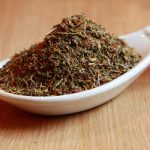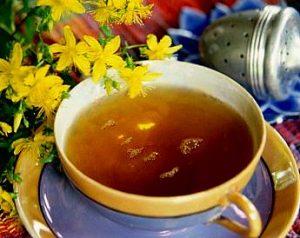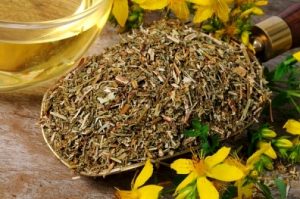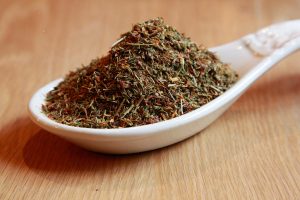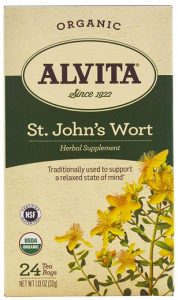St. John’s Wort Tea
St. John’s Wort tea is an herbal infusion prepared from the leaves and flowers of St. John’s Wort (Hypericum Perforatum), a flowering plant. Having a host of essential minerals and compound, this tea has gained immense popularity as an anti-depressant, besides facilitating in providing relief from other ailments as well.
History and Origin
Since the flowering and harvesting happened on the 24th of June, coinciding with the feast day of St. John, the Baptist, it has attained its present day name, while the term “Wort”, in Old English means plant. Being indigenous to parts of Asia and Europe, this plant is commonly found in Canada and the United States growing along the roadsides, woods as well as meadows. Countries like China, Africa, and India are also found growing this plant, while Australia is said to contribute for 20% of the world’s production.
The plant has been immensely used in ancient Greece as well as other countries around the world for more than thousand years for treating disorders of the nerves as well as other illnesses. In fact, herbalists of the ancient times like Pliny and Hippocrates recorded the medicinal value of this herb. It was used in the form of tablets, decoction and tea to heal several health hazards.
Health benefits of St. John’s Wort Tea: What is it good for
Anti depressant properties
Scientific studies have deduced the ability of an extract of St. John’s Wort to be effective in reducing symptoms of mild to moderate depression. Some researches have also mentioned it to be as strong as selective serotonin reuptake inhibitors (a class of drugs used as antidepressants for treating depression). Though the exact mechanism of St. John’s Wort is unknown, it is said to contain chemicals such as hypericin, flavonoids and hyperforin which in turn work towards increasing the availability of the neurotransmitters serotonin, dopamine and norepinephrine that help in improving the mood by modulating the signals of the brain as well as facilitating the nervous system’s optimum functionality.
Drinking this tea on a daily basis may keep you away from anxiety, mood swings, low energy levels, sleep disorders as well work towards improving certain mental conditions like seasonal effective disorder ( especially happening in the winter months when some people seem to be in a depressing mood), and obsessive compulsive disorder.
However, if you are already on anti-depressants, have a word with your doctor prior to taking this tea or any form of St. John’s Wort.
Though most findings were conducted mostly on adults, one study had been carried out on children involving about 100 of them who were above twelve years old , indicating that it may be safe enough in treating mild or moderate forms of depression in them. However, a medical practitioner’s advice is to be sought before giving them any form of this herb ( tea, extract, tablet or tincture) for treating depression and they should be closely supervised after consuming the same for any side effects like allergies or stomach upset.
For combating an onset of Parkinson’s disease
One of the primary causes of Parkinson’s disease is the deficiency of the neurotransmitter dopamine. As St. John’s Wort is known to bring in an increase in the level of dopamine (mentioned above), the tea or any other extract prepared from it might be useful in restricting an onset of this disorder especially in those prone to it, according to findings. Studies even associate the antioxidant properties of the herb to reduce neuronal degeneration that often triggers this disease. However, more concrete research is required to prove the power of the tea or any other St. John’s Wort extracts in minimizing chances of developing this condition.
Relieves menstrual disorder symptoms
As St. John’s Wort is beneficial in improving mood because of its anti-depressant properties, it is said to be beneficial in overcoming the emotional symptoms women show during PMS like food cravings, fatigue and irritability. Its anti-inflammatory properties further aid in relieving women of the cramps they undergo in this time. A study has stated that taking this herb in any form has brought about 50% reduction in the severity of the symptoms.
However, women on birth control or oral contraceptive pills should consult their doctor before consuming the tea or decoction of St. John’s Wort as it is said to reduce the functionality of the pills resulting in unplanned pregnancies.
Several studies have even confirmed that the mood swings, anxiety and depression women confront with during menopause is minimized by this herbal infusion. When combined with black cohosh tea it works even better for controlling menopausal symptoms.
For hangover
Certain preliminary research suggests that the hyperforin present in St. John’s Wort may be useful in treating hangovers and alcoholism.
In order to combat alcoholism, one may take a cup of this post breakfast and dinner on a regular basis for a span of approximately six weeks to obtain the desired results.
On the other hand, one can overcome symptoms of hangover by having this tea twice or thrice the following day after they have had a stint with alcohol.
Antiviral properties
The presence of hypericin in this herb is beneficial in fighting against several viruses such as human papillomavirus, hepatitis B, cytomegalovirus, and herpes. In fact, this antiviral activity has been observed through laboratory and animal findings, though studies regarding the same have not been conducted on humans yet. To checks its impact on HIV, studies were conducted in 1991 on people with this disease with the results showing that a higher doze of the extract of St. John’s Wort was needed to be given in such cases that would lead to adverse effects.
Apart from the antiviral properties it also acts as a strong antibiotic and the combination of both makes it useful in relieving phlegm congestion thus helping in providing relief from sinusitis, bronchial infections and cough. If you are a regular sinus sufferer then try drinking a cup of this tea post breakfast and dinner to alleviate this condition.
Diuretic properties
Being a strong diuretic, it is capable of reducing the withholding of fluids and also clearing the body of toxins through urine. Its ability to control bladder movements as well as anti-depressant properties makes it useful in curing bed wetting in children and adults (especially the ones occurring due to depression and mood instability)
For the skin
Because of its anti-inflammatory and antibacterial properties, an infusion of this herb when cooled and applied to the skin would help in treating minor wounds, cuts, bruises as well as other skin irritations.
How to make St. John’s Wort Tea
- Take a cup of boiling water
- Pour it over two teaspoons of the dried herb ( flowers/ leaves)
- Allow it to steep for about ten minutes
- Filter it using a strainer
- Add honey for taste if you wish
Safety and Precautions
Side effects
Though it does not have severe side effects, over consumption may result in stomach upset, hives, dizziness along with other symptoms.
During Pregnancy
It is advisable to refrain taking St. John’s Wort tea during pregnancy as sufficient evidence has not been found to state that it is safe. Women trying to get pregnant should also stop consuming it three months before they attempt conception. If you are already taking any form of this herb and your pregnancy has been detected consult your doctor as stopping it suddenly might lead to withdrawal symptoms.
Lactating or breastfeeding mothers should not take this tea, though sufficient research has not been done to prove the same. However, according to a finding, mothers taking this tea during the breastfeeding phase may find their babies to be colicky or drowsy.
Where to buy
This tea can be found online or in stores selling herbal teas.
Article was last reviewed on 25th November 2022
Related Articles
Leave a Reply
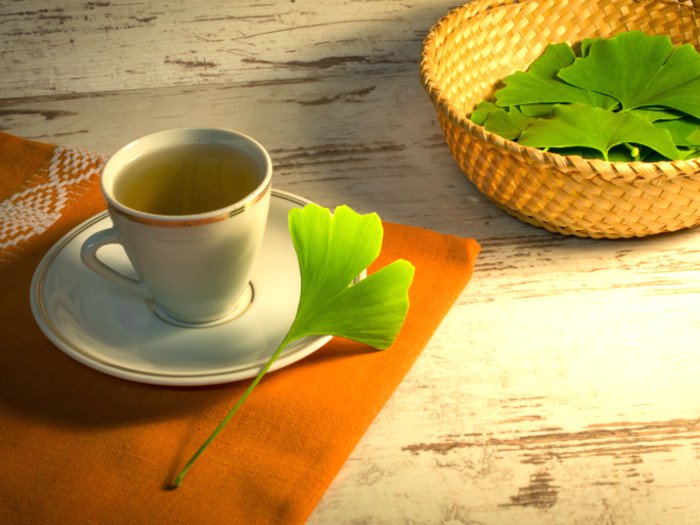
Ginkgo Biloba Tea
The Ginkgo Biloba tea is an herbal infusion obtained from the extract of the dried leaves
Read more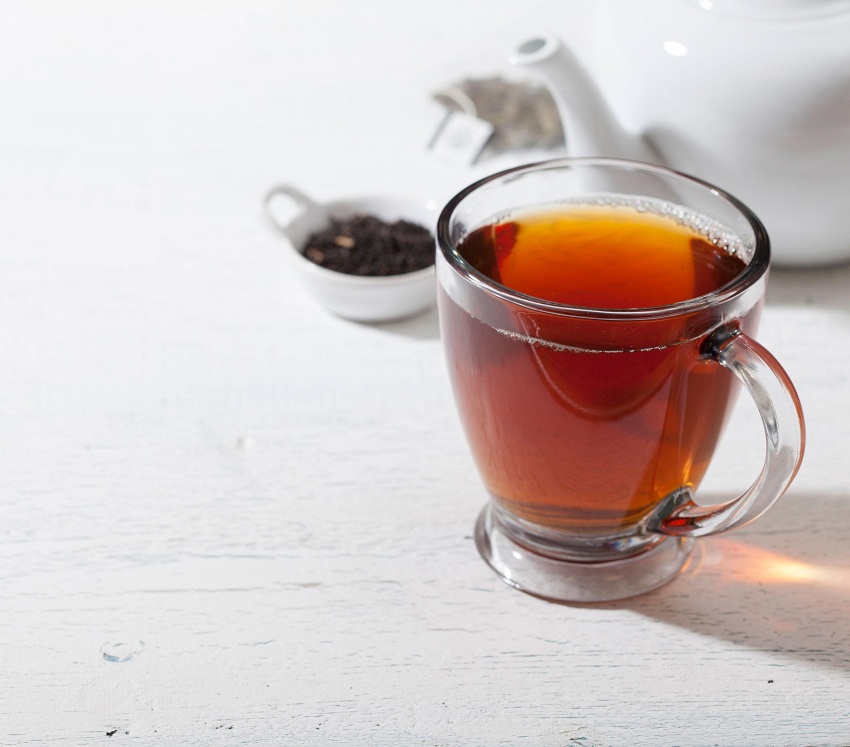
Black Tea
Black tea, belonging to the same group as the green, white and oolong teas is the most oxi
Read more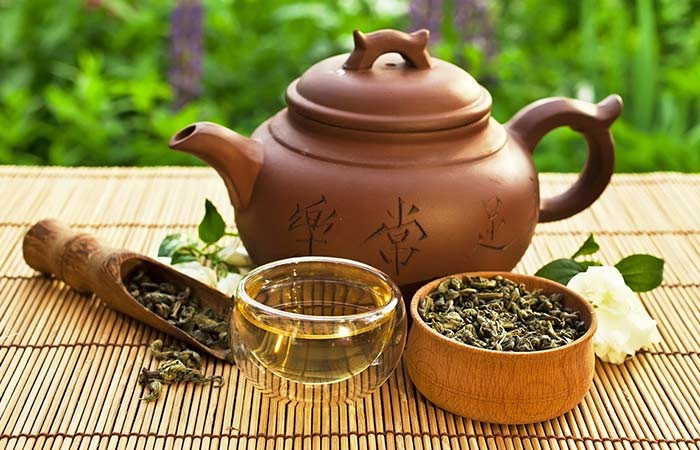
Oolong Tea
What is oolong tea Oolong, a traditional beverage of China, is prepared from the buds, st
Read more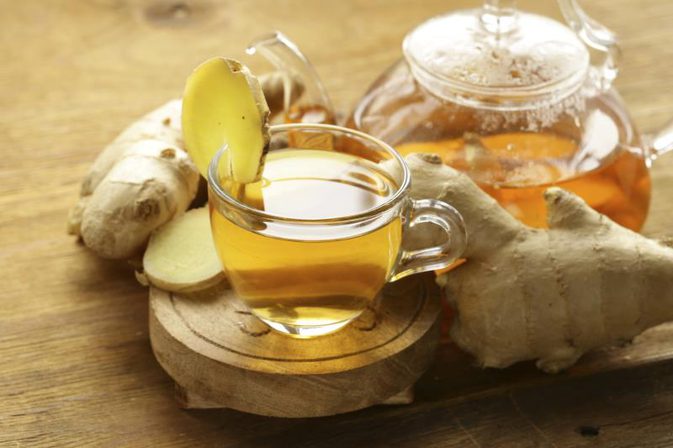
Ginger Tea
Ginger tea, prepared from the roots of ginger, is a popular herbal beverage of Asia. Becau
Read more
